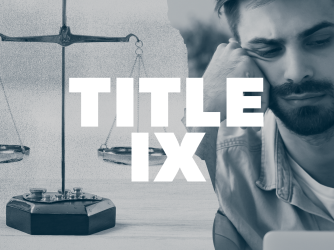Table of Contents
Student Newspaper Loses Its Funding After Criticizing Student Government
At Montclair State University, it appears that the student government has given in to the age-old desire of politicians to silence their critics. Following a spate of negative coverage aimed its way on the pages of the student newspaper, the Montclarion, the student government froze the Montclarion's allotted funding.
The conflict started when the Montclarion consulted a lawyer in order to see if the student government's policy of denying the press entry to some of its meetings was unlawful under New Jersey's open meetings law. Student government president Ron Chicken challenged the newspaper's right to hire a lawyer and fired the lawyer. The paper responded by publishing pieces critical of the student government. Rather than continue the dialogue, the student government instead froze the paper's student-fee funding, in effect temporarily silencing it.
If the state legislature tried to cut off funding to a public university after one of its professors published a book criticizing the state legislature, the violation of the First Amendment would be clear. However, when it comes to the student newspaper, people oddly seem more likely to see it as within the university's discretion to withdraw funding for the paper whenever it sees fit.
This case hinges not only on the legal status of the student newspaper, but also the legal status of the student government. Setting aside the possibility that the student government is simply ill-informed about the First Amendment, the student government, for its part, either does not see itself as a public agency or sees the student newspaper as its mouthpiece. Unfortunately, both of these faulty views have found credence in the jurisprudence of some federal courts.
The student government is a public agency, set up to represent the students in the university community. It is funded by a tax (a.k.a. student fee) on every university student. The student government's relatively small size and function, which is often limited in terms of its unilateral power, leads some to the conclusion that it is not a "real" public agency, but simply a "learning lab" for students.
However, the relatively small size and function of an agency does not preclude its status from being public. Many indisputably public offices, acquired in elections from local populations, have narrow constituencies and powers. For example, a county comptroller is charged with completing and maintaining the financial records for a county. Like the student government, the county comptroller has a limited constituency (those who reside in the county) and a limited function (keep the financial records) with little unilateral power. None of this changes the status of the local comptroller as a public official. Similarly, the student government's relatively limited powers and relatively limited constituency do not alter its status as a public entity. The overriding factor is the function for which the entity is established, which in this case is to serve and represent the student body.
As a public entity, the student government is bound to abide by the First Amendment. If the student newspaper is the mouthpiece of the student government, then the student government can control and dictate the content of the student newspaper consistent with the First Amendment because the government is allowed to regulate its own speech. However, the student newspaper in this case, as in most cases, is not and never was the Student Government Newspaper, just as it is not and never was the mouthpiece of the university at large.
The Montclarion, like most student newspapers, receives its funding from student fees as well as from independent advertisers. Partial funding from the public purse is not sufficient to make an institution public. Much like a private university, which may receive hundreds of millions of dollars in public money, does not become a public entity by virtue of the public assistance, a student-run newspaper does not become an arm of the state simply because it receives public money. Even though most people accept that private institutions can receive public monies and remain private entities, this fact is too often forgotten when it comes to student newspapers.
Student papers generally (and certainly in this case) are independent organizations, set up and run by students for the purpose of printing their private points of view. The papers are organized and advertised as such. Accordingly, a public agency, whether it be the state legislature, the public university's Board of Trustees, or the student government, cannot, consistent with the Constitution, withdraw funding based on the student newspaper's viewpoint. It cannot do this anymore than the state legislator can withdraw funding from a private university because it does not like the government-critical books it has been publishing lately.
The MSU student government should realize its obligation to abide by the First Amendment's guarantees and, accordingly, unfreeze the funds for the Montclarion. Admirably, the Montclarion seems ready and willing to stand its ground.
Recent Articles
FIRE’s award-winning Newsdesk covers the free speech news you need to stay informed.


FIRE statement on campus violence and arrests

BREAKING: New Title IX regulations undermine campus free speech and due process rights
